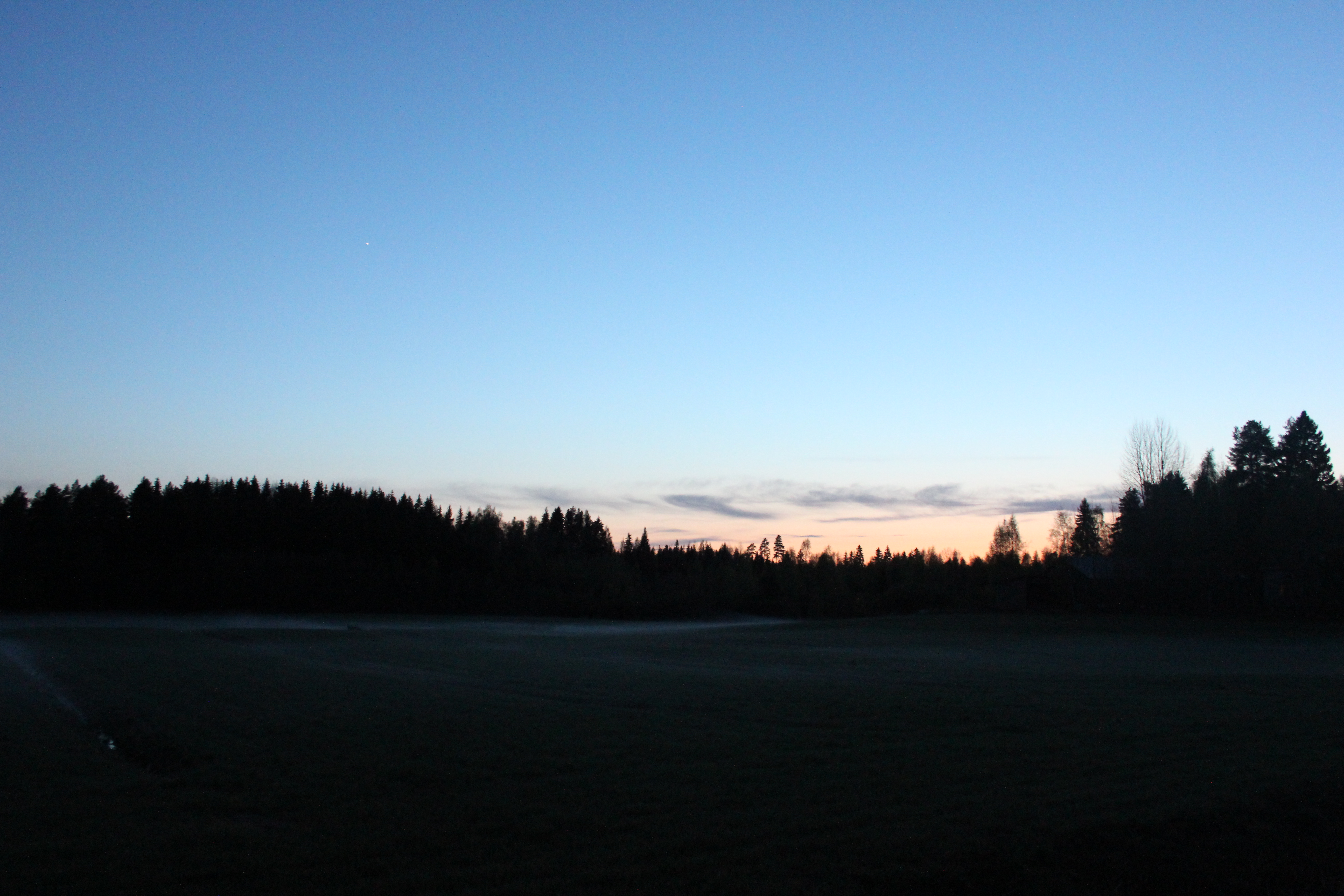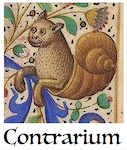Midnight in Kolho
Losing the way, or finding a new one?
When asked what are their main characteristics, Finns themselves will tell you that they are usually quiet and do not tend to talk too much. Paradoxically, the ones who tell you that are usually exceptions to the rule.
Yesterday I made a short visit to the nearby town of Orivesi, where there was an Argentine tango festival that I wanted to check out. It was really just a dance event for people who are learning to dance, but it wasn’t Finnish tango, but the classic Argentine tango that I know too well. Still, it was nice to see Finns dancing to the voice of Gardel. (I myself can’t dance, as I have two left feet).
I took the last train back at 22:37, and, sitting next to a Finnish woman, I ended up interviewing her for my documentary about Finnish identity. In reply to my question, she also said that Finns do not talk too much. However, in her case, she ended up talking quite a bit, and even after the interview she told me all kinds of things about Finland and Finns, and the best saunas to visit in Tampere and so on. It was really very nice of her, but I ended up losing track of time, and when I said goodbye and got off the train, I realized too late that I had missed my stop and had descended one station after.
Finnish trains are very nice, and they all have free wi-fi, but they don’t announce the stops in the loudspeaker. At least, not on the small regional trains. And for some reason — perhaps too entranced with conversation with a nice young Finnish woman, or out of mere tiredness — I didn’t notice it at all when the train stopped at my station. In fact, I was sure I had counted only the two usual stops, so I was sure I was at the right one. But when I got off, I was in a very dark, unfamiliar place with no one around, and the sign read: “KOLHO”.
I suppose there was a time frame of perhaps one or two seconds when I could have gotten back into the train, but, still too confused by the situation, I could just watch as the doors closed and the train departed. The young woman through the window was looking again at her phone and didn’t even see me as I waved, lost and forlorn.
Now it was dark.
Kolho. There was nothing there, really. Just a small wooden building which I suppose was the train station, which was of course closed, and forest all around. The village supposedly has 1,300 inhabitants, but the station seems to be located away from the main city entre, if it even has one. On one side of the station, there was just an empty parking lot, on the other side, a huge lake.
I was lucky, though. For one, I had a bicycle with me, which I had taken on the train. And two, it was almost summer, and in Finland during this period it’s warm and it doesn’t really get dark until very late. In fact, it was about 23:20 then, but one could still see the light from the sunset on the horizon. The sky was still blue and only one star could be seen — perhaps Venus?
A road sign further on indicated that the distance to my town was 15 km, which didn’t seem too bad, even if in the end it actually turned out to be 18 km, and I had a heavy bicycle with no shifts. Still, it was better than having to sleep in the forest.
For many kilometres there were no houses, just trees all around. There was not even any road sign, except for the usual “Moose crossing” warning, so I wasn’t even sure if I was going in the right direction.
By midnight, it was a bit darker, but still not completely. During the whole time that I was on the road, only one car passed by, just once. There were occasional farm houses here and there, but mostly it was just woods and lakes. No one to be seen for miles. Not even a moose, despite the several signs. A lonely place, indeed.
The woods are lovely, dark and deep,
But I have promises to keep,
And miles to go before I sleep,
And miles to go before I sleep.
I did arrive home — or at my temporary “home” — at around 00:30, after one long hour cycling. In the end, it wasn’t too bad. A little adventure to change routine.
Sometimes I wonder. Did we, also, as a civilization, “miss our stop”? We seem to be advancing frightfully towards some kind of strange dystopia, although not many see it that way. In fact, most people seem to think that we are progressing, and that things are getting better and better, or at least tend to agree with the basic ideology of the status quo that says that we’re on a road to utopia.
And yet, in most Western countries today, a large majority, close to 70% of people, think that the next generation will have it worse than we do, at least, in economic terms. Asked if they think their children will be better off financially than their parents, 82% of Japanese said “no, worse”; and the same think 78% of French, 76% of Italians, 75% of Canadians, and 72% of Americans, Brits and Australians. The only developed European country where the “better off” won, but just barely (47% against 46%), was Sweden. Finland was not part of the poll.
When I was a child, back in the Pleistocene, we imagined that in the year 2023 (if we could even see that far) we would have colonies on the Moon and Mars, spaceships, robots, flying cars, incredible medical advances and a society with no crime, no poverty, no war. But now, all we have from that list are robots, and mostly they are of the annoying chatbot kind. When, a couple of years ago, I asked students to describe in a short essay their visions for the future, most painted a gloomy landscape of totalitarian governments and economic doom. The future ain’t what it used to be.
Sometimes this darkness overwhelms me and I even ask myself if I should keep on writing. It all seems a bit pointless. Who am I even writing for, and why? I don’t really know. I wish I could write just about classic movies, but that doesn’t have a large public either.
But, then again, why be so gloomy? A missed station and a detour can also be an adventure. It’s also possible that I have been reading too many negative news in too many questionable sites, and things are not that dark.
It might be close to midnight, but the sunlight can still be seen on the horizon, the sky is still blue, and there’s a lone bright star in the sky, showing the way.


Sobering that so many see our future as being rather bleak. There is another perspective out there – for those who acknowledge the spiritual side of things. It is this: we are approaching the end of an Age. That’s why everything is so crazy right now. (Ends of Ages bring out the batshit, or so I’m told.)
The upside is that this is a time of unprecedented opportunity. Spiritual growth, if one pursues it, goes into high gear, apparently. Kind of like a plant that has reached a certain size – it might have been growing slowly until now, but with its root system set up and enough leaves to power more growth, it can really get going.
I hope you’ll keep writing. Thank you for the story of missing your train stop – I enjoyed the vicarious adventure.
“I wish I could write just about classic movies, but that doesn’t have a large public either.”
Have you seen “One Flew Over the Cuckoo’s Nest”? My husband and I just watched it this weekend and we are both feeling a bit stunned about how much what goes on in the film parallels our post-Covid world. (A corrupt “health care” profession, the inability of average people to claim their own freedom.)
If you’re familiar with the film, we’d love to hear your thoughts about it.
I saw it years ago but it’s interesting as you mention the connection with our current world. It’s a good movie. Supposedly Ken Kesey (author of the novel on which it was based) was a patient in the CIA/MKULTRA experiments with LSD and other drugs, so possibly the inspiration came from that.
Wow. That is fascinating – that Ken Kesey may have been involved in the CIA/MKULTRA experiments. I had no idea. Makes me interested in getting a hold of the novel. Thanks for that info.